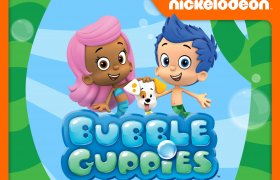How to Teach Kids to be Responsible Consumers
Children as young as two are playing with their parent’s phones and watching videos that they like and are able to scroll through the phones and touch buttons and know exactly what they want to view next. This is pretty amazing since years ago the average two-year-old was playing with blocks and listening to mom read them a story. Now they are slowly learning to read by using their visual capacity to control the device they are using. While they are scrolling through these devices, they are able to see the different consumer products geared to their age level flashing by on the bottom of the page. This is your child’s first real experience of looking at merchandise and seeing their likes and dislikes. As they learn to communicate and commercials come on or they see something in the store, they ask their parents for the toy or object that has their attention. Eventually birthdays, holidays and events come up as they grow up and they still know what they want, however, it’s more expensive than when they were two years of age.
The market for kids products is gigantic and parents are having a tough time raising their kids the way they were raised.
Then they are being bombarded by commercials that parents don’t always agree with but kids want to have it. Children are the media’s biggest target for consumerism. As parents, it’s good to start them off young and teach them to be healthy consumers and not shopaholics because shopping is also another addiction that people aren’t aware of. The thought process is “we only live once”, however; can your bank account handle extreme purchases or is the family going to eat noodles for the rest of the week?
Here are some ideas for parents to start teaching their children young about responsible consumerism. First, teach your child that a television show is different than a commercial. You can show them the difference in timing. A TV show is longer compared to a commercial and have them tell you when the commercial has started and when their show is back on TV. You can also quiz your kids on what the commercial was offering to sell.
When your children are of school age, you can show them all types of different advertising. You can show them commercials on TV, and download apps where products are offered and even show them the bottom of your phone’s screen so they can see the product you just researched being advertised every time you use your phone. This helps them understand the many ways media advertises for consumers.
Talk to your kids and tell them the dangers of clicking on “ads”.
Tell your child never to click on anything or use your phone to give out any information without asking first. Parents sometimes have their information stored on Amazon for instance and if your child sees something, they can easily click the wrong button and delivery is on the way to your house. Always log out of any market your information is stored on and have a password on your phone.
You can also tell your kids that social media is a great way for meeting people and buying things or getting ideas, but predators lurk online and are waiting for the wrong information to get into their hands to steal someone’s identity.
You can help your child learn media and marketing skills by asking them if they know or have heard of the company that is advertising and what tickled their interest to read about the ad. You can also find out what kind of emotions they are displaying after they read the ad. Were your kids impressed or in shock if they saw something that was advertised inappropriately.
 Talk about the tactics that people use when they use advertising in commercials and also about the conditions and terms of the ad. If the ad is offering some great product for just a small shipping cost, tell them to read the small print. They may think it’s a bargain, but the ad is just luring the consumer to pay a small amount and after 30 days they will be billed an atrocious amount monthly unless they cancel the item and return it. Ads are ads no matter how well they are put together.
Talk about the tactics that people use when they use advertising in commercials and also about the conditions and terms of the ad. If the ad is offering some great product for just a small shipping cost, tell them to read the small print. They may think it’s a bargain, but the ad is just luring the consumer to pay a small amount and after 30 days they will be billed an atrocious amount monthly unless they cancel the item and return it. Ads are ads no matter how well they are put together.
Then there is their favorite celebrity that will endorse certain products for the public’s approval. This is how commercialism uses products to reel people in to buy them by using a famous person for advertisement. The celebrity probably is not using the product because it’s $8.99 and they can afford something similar for ten times more the cost.
When your children hit middle school and high school, tell your tweens and teens that these products are about branding an item so it appeals to their age group. Most likely they get what they pay for an eighty dollar pair of jeans with a tear up the front of the leg is something they can buy at a thrift shop and do the same thing themselves for a few bucks. Kids want to stand out and be cool but tell them materialism isn’t the answer and their personality is way more priceless than what they see on TV or online.
Then your kids will walk by a store or read a magazine and see ads for alcohol, cigarettes, and e-cigarettes. Try and keep your teens and tweens away from these products if possible. Tell them that the cost of these products can add up to that device or trip they have been saving for. These are not products that should be targeting underage children but unfortunately, they are.
Then there is the dreaded peer pressure that parents and grandparents worry about. Your child may resist these tactics for awhile but if something happens to them at home that is tragic like death, divorce etc. This may be the trigger that starts them off smoking or using substances to cope with their problems. Help your kids realize that they are still young and impressionable and the media and their peers prey on these kinds of kids. Misery loves company and no one likes seeing someone happy if they are not. These are not your true friends that prey on your child’s weaknesses. Their true friends support them and help them make good choices. Advertising companies don’t care about your children’s emotions, they just want their money. This is a good topic to discuss with your kids.







